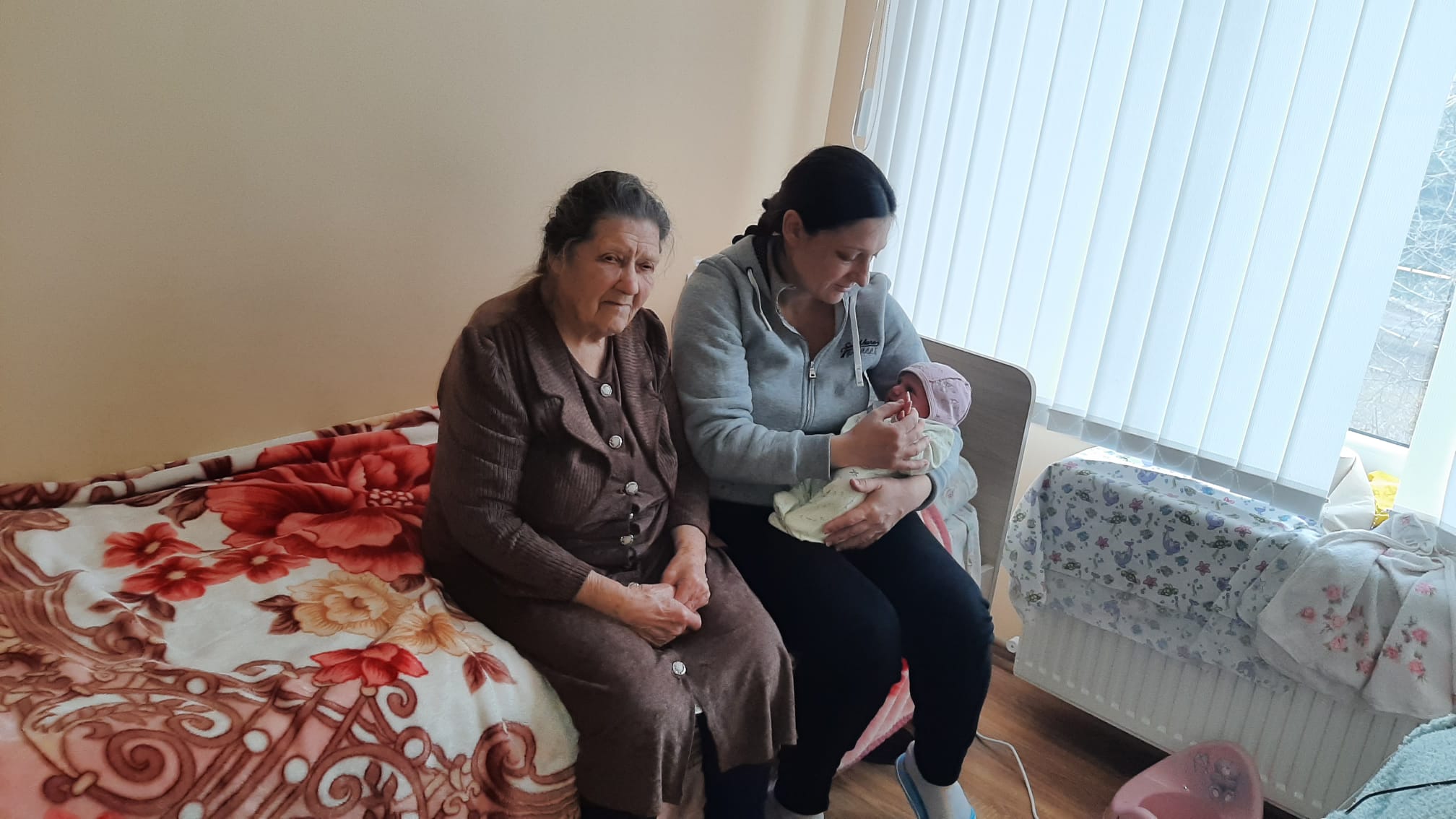
Nina (93) fled Ukraine with her daughter and granddaughter
A few days ago, the Centre for Protection of Violence Survivors in the south of Moldova was a peaceful space, set up as a temporary shelter for women survivors of domestic violence.
But now it resounds with the echo of the war unleashed by Russia on 24 February 2022, as it opens its doors as a first port of call for refugees arriving in neighbouring Ukraine.
“For three days now, the Centre has hosted 30 refugees. Half of them left this morning for a future destination. But others are on the way and there will be more to come,” says Svetlana, the Director of the Centre for Protection.
“They are very traumatized and not ready to talk about their situation,” says Aliona, the centre’s psychologist. “But most importantly, they cannot accept what has happened to them.”
I met with four people who were staying in the Centre, along with their children. All of them came from the Odessa and Nikolaev regions, where shooting, bombing and shelling were going on as we spoke.
“We are lucky to be here,” they all said unanimously, because both Odessa and Voznesensk are now in ruins.
“We are worried about our families. My older parents had to stay, and my friends didn’t manage to escape”, says Marina, who fled with her young son.
Another woman, Lena, had fled with her two-week-old baby daughter in her arms. Her 75-year-old mother and 93-year-old grandmother were due to arrive later that day.
“I have convinced my mother and grandmother to come to Moldova, and the Centre has arranged accommodation for us together.” She smiled and seemed happy about this. The first and only smile I saw from her during our visit.
They all said that they were unsure about their future, distressed by the war and did not know where to go next, or what their next destination would be.
Sergei, a man who had arrived with his two children, said that he wanted his family to settle in Bulgaria, and then he would return to Ukraine to help the country.
The women wanted to stay in Moldova, to wait until things settle in Ukraine, and then return. “We want to go home, we don’t want the war to continue, but we are afraid that it will continue for a while.”
Marina said that she was very worried about the shock and trauma her children had endured, and how they will be able to continue their studies, at university and at school. Tears came to her already swollen eyes, while the boy refused to communicate. He wants to return to his friends in Ukraine.
The biggest needs they all have right now are about where to find longer-term accommodation, their rapidly draining finances and lack of money, problems with ID cards and passports as most of the children do not have any, and how to find a possible job. On top of this, there is a huge need for psychological counselling for older people and children to restore the damage done to their mental health.
We leave the family with a feeling of indignation, but also frustration about this war that has been unleashed in the 21st century and brought so much suffering, pain, and death.
It’s absolutely heart-breaking to see.
